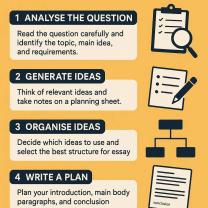What is it like to be a substitute teacher?
Being a substitute teacher can be a rewarding yet challenging experience. The role involves stepping into various classrooms and adapting quickly to different teaching environments. Here are some insights into what it's like to be a substitute teacher:
Variety of Classrooms:
- As a substitute teacher, you may work in different schools, grade levels, and subjects. This variety can be both exciting and challenging, requiring adaptability and a willingness to learn on the go.
Adapting to Lesson Plans:
- You will often follow lesson plans left by the regular teacher. Adapting to these plans, understanding the material, and effectively delivering it to students are important aspects of the role.
Building Rapport Quickly:
- Building rapport with students is crucial, even in a short time frame. Establishing clear expectations, being approachable, and showing interest in students' learning contribute to a positive classroom atmosphere.
Classroom Management Skills:
- Effective classroom management is key to a successful day as a substitute. You may encounter various student behaviors, and your ability to manage the classroom environment will impact the overall learning experience.
Flexibility and Adaptability:
- Substitute teachers need to be flexible and adaptable. Unexpected changes, variations in teaching styles, and different classroom dynamics are common, requiring quick adjustments.
Navigating Technology:
- Depending on the school, you may need to navigate and use technology in the classroom. This could include smartboards, online platforms, or other instructional tools.
Supporting Special Needs Students:
- You might encounter students with special needs or individualized education plans (IEPs). Being aware of and supporting these students according to their accommodations is part of the role.
Leaving Detailed Feedback:
- Leaving detailed notes or feedback for the regular teacher is essential. This ensures they are informed about what was covered, any challenges faced, and any noteworthy student behavior.
Professionalism and Representation:
- Substitute teachers represent the school, and professionalism is crucial. Dressing appropriately, maintaining a positive attitude, and interacting professionally with staff contribute to a positive image.
Continuous Learning:
- Each day brings new experiences and opportunities for learning. Whether it's a new teaching method, classroom management strategy, or insight into student behavior, being a substitute teacher involves continuous learning.
Job Availability:
- Job availability can vary. Some days you may have assignments, while other days you may not. It's important to be proactive in seeking opportunities and building relationships with schools.
Networking:
- Building a network within the education community can be valuable. Positive experiences and professional relationships can lead to more opportunities for substitute teaching or even full-time positions.
Satisfaction in Helping Students:
- Despite the challenges, many substitute teachers find satisfaction in contributing to students' education. Helping students learn and succeed, even in a short time, can be personally rewarding.
While being a substitute teacher has its challenges, it provides a unique and dynamic experience in the field of education. Many individuals find it to be a stepping stone to full-time teaching positions or a way to contribute meaningfully to the education system. Successful substitute teachers often possess a combination of flexibility, adaptability, strong communication skills, and a genuine passion for education.
What is the experience like for someone working as a substitute teacher?
The experience of working as a substitute teacher can be varied and dynamic, often offering a unique and rewarding perspective on the education system. Here are some key aspects to consider:
Pros:
- Variety and Flexibility: Substitute teachers encounter different classrooms, students, and subjects every day, keeping things fresh and preventing monotony. This flexibility can be appealing for those who thrive on new challenges and enjoy experiencing diverse learning environments.
- Direct Impact on Students: Substitute teachers have the opportunity to make a positive impact on students' lives, even if just for a short period. They can fill in for absent teachers, provide individual support, and offer new perspectives, making a difference in the classroom and potentially inspiring students.
- Developing Skills: Substitute teaching can hone valuable skills like classroom management, communication, adaptability, and problem-solving. These skills are transferable and can be beneficial in various fields, not just education.
- Building a Network: Working in different schools allows substitute teachers to meet diverse educators, administrators, and students, potentially expanding their professional network and opening doors to future opportunities.
- Low Barrier to Entry: Substitute teaching often requires minimal formal education (depending on the school district), making it accessible to individuals from various backgrounds and career paths.
Challenges:
- Limited Time and Resources: Substitute teachers often have limited time to plan and prepare, relying on existing lesson plans and needing to adapt quickly to different classrooms and student needs. This can be challenging and require flexibility and resourcefulness.
- Classroom Management: Maintaining order and engagement in unfamiliar settings can be a challenge, especially with younger students or those accustomed to a different teaching style. Effective communication and classroom management skills are crucial.
- Unpredictability: The nature of substitute teaching involves uncertainty and changing schedules. Dealing with unexpected situations and adapting to different environments requires a calm and adaptable demeanor.
- Professional Development: Substitute teachers may have limited access to professional development opportunities compared to full-time teachers. Staying updated on educational trends and best practices requires self-directed initiative.
- Feeling of Isolation: Substitute teachers can sometimes feel isolated from the regular school community and lack the same level of support and collaboration as full-time staff. Building relationships with colleagues and finding a sense of belonging can be important for overall well-being.
Ultimately, the experience of being a substitute teacher is unique to each individual and depends on their personality, teaching style, and expectations. While challenges exist, the rewards of contributing to student learning, developing valuable skills, and experiencing the diverse landscape of education can be highly fulfilling.
If you're considering substitute teaching, it's important to weigh the pros and cons carefully and ensure you have the necessary skills and temperament to navigate the challenges. Researching specific school district requirements and talking to experienced substitute teachers can also provide valuable insights into the experience.
I hope this information helps you understand the diverse aspects of being a substitute teacher and make informed decisions about whether this path might be a good fit for you.












